I want to discuss the difference between contradiction and inconsistency. I’m ok with the meaning of incoherence. I can easily spot it. Nonsense, unintelligibility being the synonyms I would use to describe what's incoherent.
Fortunately for us, at home, nobody was incoherent. Even when my mother would share her theories about extraterrestrials to explain why Hasidic women cut their hair so short, she remained intelligible. She frequently made farfetched assumptions and wouldn’t base her judgment on any valid evidence, but her speech was for the most part grammatically correct. She suffered from a lack of critical thinking that allowed superstitions and a strong propensity for new-age gibberish to get the best of her. But she was not incoherent.
Where I’m not so clear, it’s how to call certain clashes between statements. The line can be blurry.
Lets pretend a mother first says “My daughter has emotional issues that were caused by her father’s behavior.” Then adds as an argument to support the claim, “Her father is a womanizer who has been unfaithful to me, hurting me, making my life miserable.”
What’s that? It’s not a contradiction as such. It’s an inconsistency due to the lack of correspondence between the two sentences, content-wise. They share a similar topic, the father’s behavior, that’s all. They do not address the same point.
Now, lets say instead, after the first claim, that the mother continues with “I’ve been alone dealing with that problem, her father absent, offering no help; I’ve done so much for my daughter, and she simply refuses to appreciate all those sacrifices I’ve made.” Is that a contradiction?
I mean, if the claim is that the father should bear responsibility for the problems as stated in the first sentence, how can the argument to support that very claim emphasize his non-involvement? Plus, the second part of the argument seems to imply the responsibility is with the daughter via her refusal. In short, the statements lead to different conclusions. They cannot belong to the same logical flow.
Very difficult.
My father one day visited me at the hospital. Actually, it was not a real visit. He didn’t enter the building. He stayed in his car, in the parking lot. I was given permission to go out and join him. He’s in his car, crying. I’m sitting in the passenger seat, waiting for him to tell me why he’s sad. And he says, sobbing “I’m sorry, I can’t help you. I can barely help myself. You’ll have to manage on your own.”
I’m 15 years old at the time, and this is what I’m thinking as I’m hearing my father’s words: “I’m in a dormitory, night after night, with people regularly put in straitjacket, when they’re not pulling their pants down in the corridors to shit on the floor, people with saliva running down their chin, who are indeed incoherent if they speak at all. And to top that, I’m not crying, my father is.”
What’s that? What am I experiencing there? An inconsistency? A contradiction? An incongruity? An incompatibility? An inversion? A paradox?
How did dialectical materialism explain life’s absurdities? Is it by stating that people have conflicting goals and preoccupations? What about Hegel, seeing in contradictions and negations the dynamic quality underlying progress?
All in all, that must explain why I was the least evolved of the creatures back home, the only one needing the protection and care of the medical profession. I was the non-dialectician. My system of beliefs rejecting controversies, not wanting to have anything to do with opposing forces and assertions, unable to resolve disagreements through discussions with people characterized by constant inner strife.
Deep down, I couldn’t tolerate the principle of synthesis, the fusion, the combination of positions that basically denied the search for truth. I could not accept polemic, multiple negations, endless contradictions as a methodology, as a way to carry on one’s existence. This non-idealist manner, I hated it. I couldn’t understand it. That place, in the mind, where no one’s troubled by the inherent tensions among thoughts, I didn’t want to go there. It scared me. Such spaces felt fascist to me, grounds encouraging bad faith and dishonesty.
Once a thesis eloquently established, I know the step for its antithesis to be an entire matter of subjectivity. It can arise from any fiction the mind fancies as serving its own interest. There are no rules to dictate the selection of the contradiction. It ends up being anything. Being simply rhetorical. Not logical.
So I answered my father, not so much out of pity, but mostly to cut that conversation short, that I understood, and I told him not to worry.
That was not a synthesis, darling. That was a blatant lie. And no solution, no revolution were awaiting me on the horizon.
But I got out of the car and walked back into the hospital a bit improved, I must admit, Hegel and his idea of evolution slightly redeemed in my eyes. The other patients, from a comparative point-of-view, seeming not so bad after all.
So you can see, honey, why your Laolao’s search for a philosophy that would help make sense of her world led to so much confusion. And why that contradiction felt totally abject, impossible to apprehend.
Only the delirium I heard in my dorm at that point was soothing, because it was nonsensical, therefore irreproachable, never disaffirming itself.
Laolao
Fortunately for us, at home, nobody was incoherent. Even when my mother would share her theories about extraterrestrials to explain why Hasidic women cut their hair so short, she remained intelligible. She frequently made farfetched assumptions and wouldn’t base her judgment on any valid evidence, but her speech was for the most part grammatically correct. She suffered from a lack of critical thinking that allowed superstitions and a strong propensity for new-age gibberish to get the best of her. But she was not incoherent.
Where I’m not so clear, it’s how to call certain clashes between statements. The line can be blurry.
Lets pretend a mother first says “My daughter has emotional issues that were caused by her father’s behavior.” Then adds as an argument to support the claim, “Her father is a womanizer who has been unfaithful to me, hurting me, making my life miserable.”
What’s that? It’s not a contradiction as such. It’s an inconsistency due to the lack of correspondence between the two sentences, content-wise. They share a similar topic, the father’s behavior, that’s all. They do not address the same point.
Now, lets say instead, after the first claim, that the mother continues with “I’ve been alone dealing with that problem, her father absent, offering no help; I’ve done so much for my daughter, and she simply refuses to appreciate all those sacrifices I’ve made.” Is that a contradiction?
I mean, if the claim is that the father should bear responsibility for the problems as stated in the first sentence, how can the argument to support that very claim emphasize his non-involvement? Plus, the second part of the argument seems to imply the responsibility is with the daughter via her refusal. In short, the statements lead to different conclusions. They cannot belong to the same logical flow.
Very difficult.
My father one day visited me at the hospital. Actually, it was not a real visit. He didn’t enter the building. He stayed in his car, in the parking lot. I was given permission to go out and join him. He’s in his car, crying. I’m sitting in the passenger seat, waiting for him to tell me why he’s sad. And he says, sobbing “I’m sorry, I can’t help you. I can barely help myself. You’ll have to manage on your own.”
I’m 15 years old at the time, and this is what I’m thinking as I’m hearing my father’s words: “I’m in a dormitory, night after night, with people regularly put in straitjacket, when they’re not pulling their pants down in the corridors to shit on the floor, people with saliva running down their chin, who are indeed incoherent if they speak at all. And to top that, I’m not crying, my father is.”
What’s that? What am I experiencing there? An inconsistency? A contradiction? An incongruity? An incompatibility? An inversion? A paradox?
How did dialectical materialism explain life’s absurdities? Is it by stating that people have conflicting goals and preoccupations? What about Hegel, seeing in contradictions and negations the dynamic quality underlying progress?
All in all, that must explain why I was the least evolved of the creatures back home, the only one needing the protection and care of the medical profession. I was the non-dialectician. My system of beliefs rejecting controversies, not wanting to have anything to do with opposing forces and assertions, unable to resolve disagreements through discussions with people characterized by constant inner strife.
Deep down, I couldn’t tolerate the principle of synthesis, the fusion, the combination of positions that basically denied the search for truth. I could not accept polemic, multiple negations, endless contradictions as a methodology, as a way to carry on one’s existence. This non-idealist manner, I hated it. I couldn’t understand it. That place, in the mind, where no one’s troubled by the inherent tensions among thoughts, I didn’t want to go there. It scared me. Such spaces felt fascist to me, grounds encouraging bad faith and dishonesty.
Once a thesis eloquently established, I know the step for its antithesis to be an entire matter of subjectivity. It can arise from any fiction the mind fancies as serving its own interest. There are no rules to dictate the selection of the contradiction. It ends up being anything. Being simply rhetorical. Not logical.
So I answered my father, not so much out of pity, but mostly to cut that conversation short, that I understood, and I told him not to worry.
That was not a synthesis, darling. That was a blatant lie. And no solution, no revolution were awaiting me on the horizon.
But I got out of the car and walked back into the hospital a bit improved, I must admit, Hegel and his idea of evolution slightly redeemed in my eyes. The other patients, from a comparative point-of-view, seeming not so bad after all.
So you can see, honey, why your Laolao’s search for a philosophy that would help make sense of her world led to so much confusion. And why that contradiction felt totally abject, impossible to apprehend.
Only the delirium I heard in my dorm at that point was soothing, because it was nonsensical, therefore irreproachable, never disaffirming itself.
Laolao





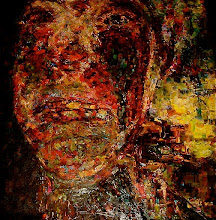
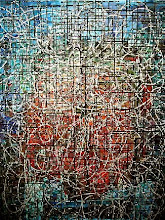




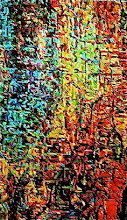

.jpg)






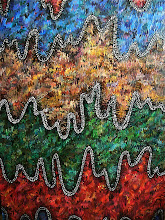


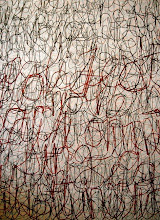
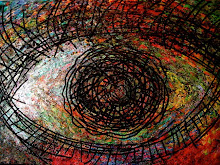
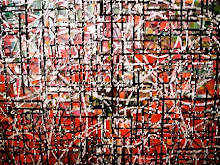


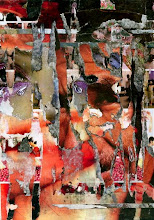




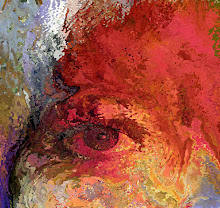
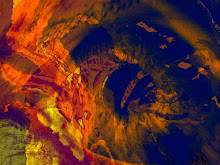
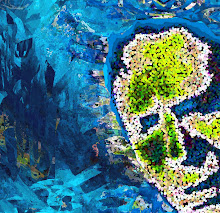
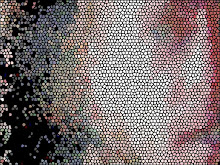.jpg)

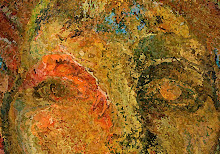
.jpg)

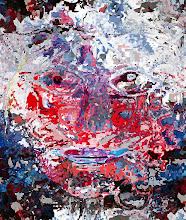
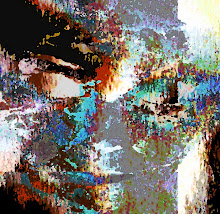
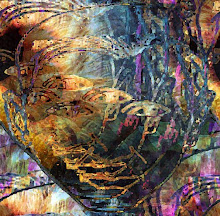


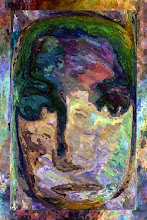photo+album).jpg)
.jpg)
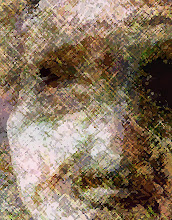
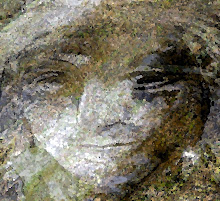
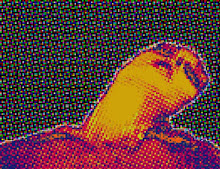
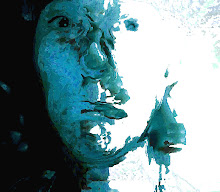






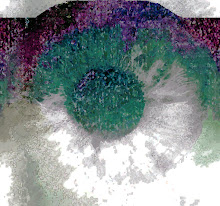





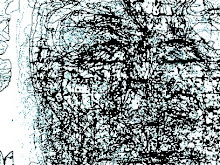.jpg)


No comments:
Post a Comment